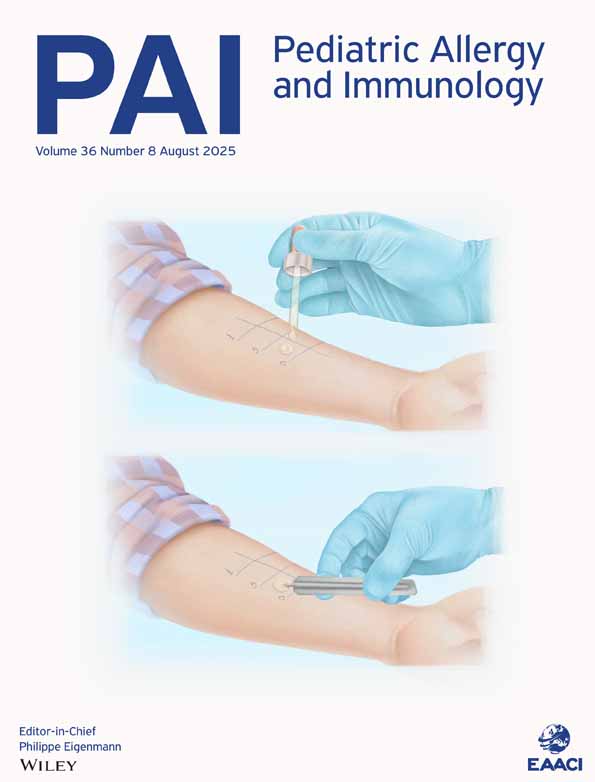Determinants of atopic sensitization in Turkish school children: Effects of pre- and post-natal events and maternal atopy
Abstract
Emergence of new environmental risk factors, and/or loss of protective factors of a traditional lifestyle may explain the increase, or variations in prevalence of allergic diseases. The aim of this study was to delineate the prevalence and spectrum of, and to reveal the causal and/or protective factors for atopic sensitization among a heterogenous cohort of Turkish children, for the first time in our country. The study design adhered to International Study of Asthma and Allergies in Childhood (ISAAC) phase II protocol. A self-administered parental questionnaire about demographic characteristics and detailed risk factors, and skin-prick test with 13 allergens were employed in a clustered random sample of 8–11-yr-old Turkish school children. Atopy was defined as the presence of at least one positive skin reaction to any allergen tested. The association between a total of 78 risk factors and different aspects of atopy were analyzed in 1144 children with multivariate logistic regression analysis. The overall prevalence of atopy was 20.6%. Most common sensitizations were to grass pollens, Dermatophagoides pteronyssinus and Blatella germanica. Day care attendance, high paternal education level, male gender and maternal asthma were significant risk factors for atopy. Breastfeeding more than 6 months (compared with 0–6 months), maternal smoking during pregnancy and a birth weight under 2500 g were inversely related to (or protective factors for) atopic sensitization. Maternal atopic disease had significant effects on risk factors pattern. In children with a maternal atopy history a low birth weight, day care attendance and maternal smoking during the first year of life independently increased the risk of atopic sensitization. Gender, breastfeeding and paternal education did not show any association with atopy in this group of children. A history of measles and low gestational age were significant protective factors for mite sensitization. This study showed that children of atopic mothers showed a different profile of risk factors associated with atopic sensitization, when compared with other children. Prenatal and early childhood events had important associations with atopic sensitization.




